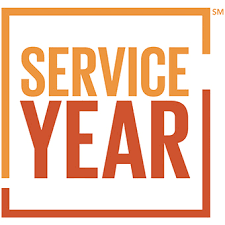All nonprofits require the creation of a specific internal control methodology as the basis for conducting operations. It isn’t enough for your organization to only seek to expand revenue goals or marketing strategies. The benefit of an internal control methodology is to ensure integrity in your organization’s reporting, efficiency in processing and consistent standards to reduce costs and redundancy.
Simply making rules is not enough. Your nonprofit not only needs to set goals, but must also establish crisp and consistent policies and procedures to achieve those goals through effective measures of internal control. Adequate levels of internal control have an effect on both the internal and external matters of your nonprofit organization.
Within the internal environment of your nonprofit entity, the development and maintenance of internal control standards requires your organizational structure to establish, oversee and enforce internal control measures over its financial reporting process. You then need to build quality control checks and balances into your financial process to maintain integrity and accuracy while reviewing various levels of spending to assess financial inconsistencies.
Control standards add a needed level of structure to the environment, thereby serving as the basis for detecting fraud activities to mitigate risk. Your management team needs to establish and enhance a series of basic controls including segregation of duties, periodic reconciliation of accounts, and strict authorization processes.
The external impact of internal controls are best seen by the clients and customers with whom your nonprofit entity deals. Adequate internal controls put a good face on your enterprise by demonstrating to your clients that their relationship with you is guarded and prized.
One of the most valuable parts of any service organization is its increased internal control presence. As your enterprise relates more and more with clients and potential customers via the Internet through various online applications, it is imperative to demonstrate that privacy is being protected, screen presentation is adequate and crisp, and efficiencies are built with the client to improve communication and exchange information.
Consistent financial control guidelines and standards strengthen your nonprofit by offering solutions to stabilize expenditures and increase revenues, eliminate waste, offer opportunities, and deliver service and integrity to the public.
If you don’t have the tools in-house, nonprofit managers should seek out a financial expert specializing in internal control implementation who will troubleshoot the financial reporting process, evaluate and identify inadequacies, uncover weaknesses where they exist, and deliver candid recommendations to you for improvements.
A subject matter expert (SME), such as a certified public accountant, will leverage expertise and organizational skills to develop and implement internal control standards and consummate logic to design, devise, strengthen, streamline and upgrade processes, procedures and new reporting mechanisms where required.
Your nonprofit might lack documentation regarding internal processes and procedures. Such weaknesses in the control process serve as the catalyst for reporting breakdown, inconsistencies in job performance among employees, and gaps in the production line. This is also where an SME can help. The expert can help develop formal written communication and presentation of disbursement and revenue-generating standards and guidelines.
Such formal documentation will serve as the basis for education and formulation of production policy and controls and will set the tone for the overall nonprofit environment, giving staff the ability to seek out consistent guidance.
The SME will orchestrate and circulate project and spending proposals to the management team, including the definition of plan objectives, identification of methodologies to achieve objectives, formulation of data analysis and control standards, and the outlining of plans to disseminate or implement project goals and strategies. In addition, the expert will assist and advise management as the author of an official company-wide resource communication and manual for defining overall controls and reporting procedures.
The development of a stellar internal control process also includes the initiation and creation of defined internal reporting tools to give you the ability to adopt to the ongoing reorganization and ever changing environment of nonprofit organizations. Such tools offer measurability during changes in activity of your enterprise to ensure compliance to established nonprofit standards and procedures.
The internal control SME will orchestrate, coordinate and develop global business audit and control measures over your financial reporting, data feeds, policies and procedures to strengthen financial completeness during your production cycle. Reconcilement and analysis of data feeds and testing of control procedures will be conducted during regular business cycles as well as off-cycle intervals to mitigate risk and confirm compliance to mandated defined standards.
Finally, the consultant will strengthen the policies and procedures of your nonprofit organization through strategic organization planning as a measure of guidance and consultation. Various levels and procedures related to spending are assessed to identify financial inconsistencies between different segments of your organization to institute efficiencies and innovations where possible. As a result, cost savings are realized and effective measures of internal control are instituted.
A periodic analysis of operating results should be prepared (expenditures and revenues) as a measure of internal control to review the accounting entries, confirm general ledger integrity and identify suspicious and irregular spending patterns against planned and projected forecast targets. The control process is further enhanced through a review of all proposals for expenditures and an assessment of proposed solutions to confirm that spending is in line with overall targets and goals.
***
Joseph Paul Timpano, CPA, is the principal of JPT Financial Solutions in Bogota, N.J. His email is [email protected]












